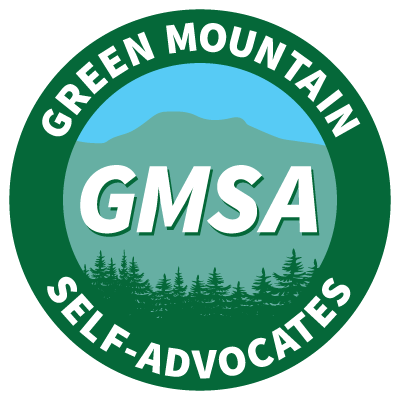RESOURCE
Stay Safe and Know Your Legal Rights Training Manual

Since 1994, the year GMSA was founded, self-advocates have been speaking up about their right to live safely in their communities. Our goals include providing abuse prevention education for youth and adults with developmental disabilities, their family members, community service providers, and advocates. A key element is teaching individuals with developmental disabilities (self-advocates) to be co-trainers of abuse prevention workshops.
Stay Safe and Know Your Legal Rights does not include sexuality education. In Vermont, this curriculum was taught to students who had already received sexuality education as part of their high school’s health class curriculum. It is highly recommended that sexuality education be taught as part of an overall abuse prevention program. Unfortunately, many students with developmental disabilities do not have sufficient opportunities to learn about abuse prevention or sexual education because some people worry it may frighten or upset the student. Often, talking about sexuality can be uncomfortable for some family members and support staff. However, sexual education enables a person to recognize if they are being sexually abused and enhances a person’s ability to provide accurate information when reporting sexual abuse. “Experience has shown that prevention and sexuality education not only helps to prevent abuse, it can help to increase self-esteem, support assertiveness, enhance understanding of personal rights and increase self-awareness of needs and desires in relationships with others” (SafePlace, 1999).
PART 1: STAY SAFE
Unit 1: Communication
- Lesson 1: Effective Communication
- Lesson 2: Assertive Communication
- Lesson 3: Walking Tall/Looking Strong
- Lesson 4: NO/GO/TELL Strategy
- Lesson 5: Harassment
Unit 2: Safety at Home
- Lesson 1: Keeping Your Home Safe
- Lesson 2: Internet
- Lesson 3: 911
- Lesson 4: Knives/Guns/Weapons
Unit 3: Safety in the Community
- Lesson 1: Safe/Unsafe People and Places
- Lesson 2: Safe/Unsafe Situations
- Lesson 3: Keeping Your Necessities Safe
Unit 4: Drugs and Alcohol
- Lesson 1: Illegal Drugs
- Lesson 2: Alcohol
- Lesson 3: Tobacco Use
Unit 5: Sexual Abuse
- Lesson 1: Sexual Awareness
- Lesson 2: Dating Rights and Responsibilities
- Lesson 3: Setting Boundaries
PART 2: KNOW YOUR LEGAL RIGHTS
Unit 1: Terminology
- Lesson 1: Understanding the Terms
Unit 2: Involvement in a Crime
- Lesson 1: Witness to a Crime
- Lesson 2: Victim of a Crime
- Lesson 3: Accused of a Crime



